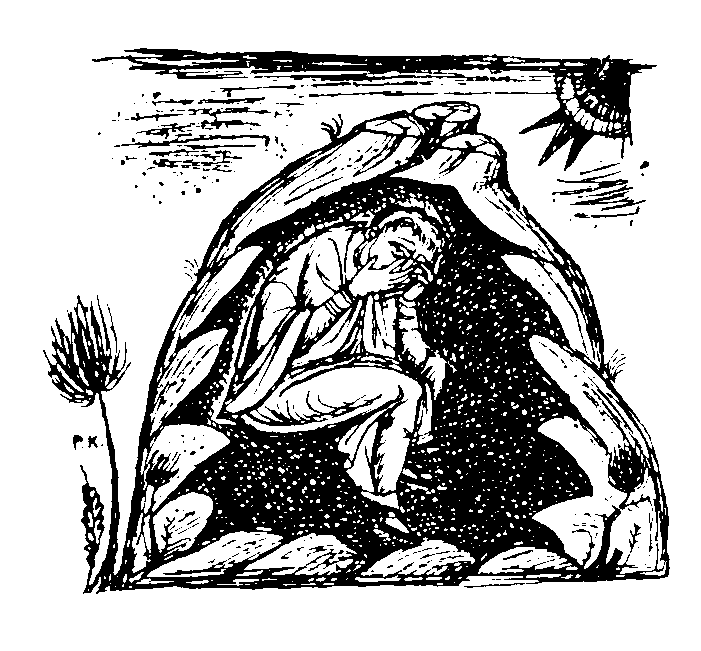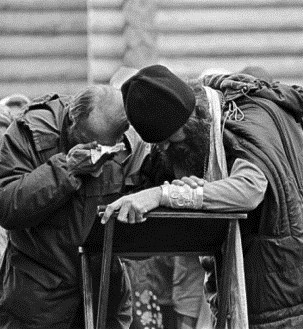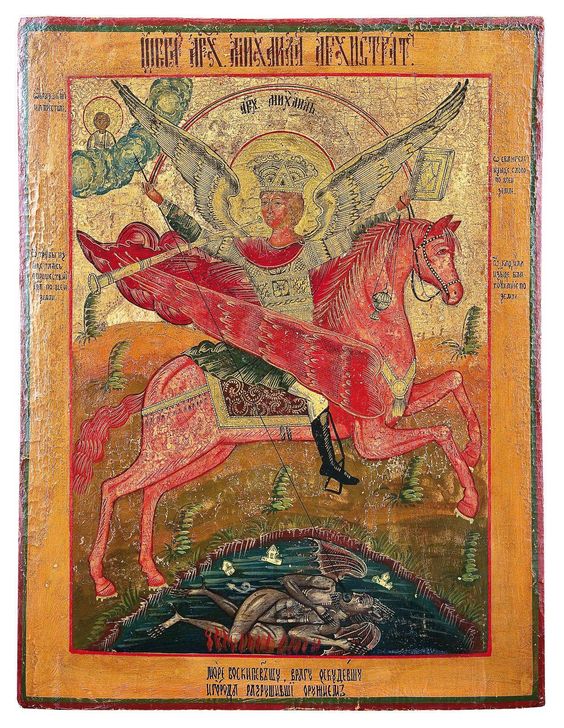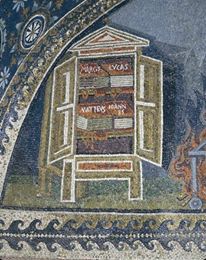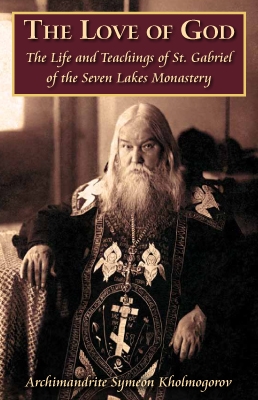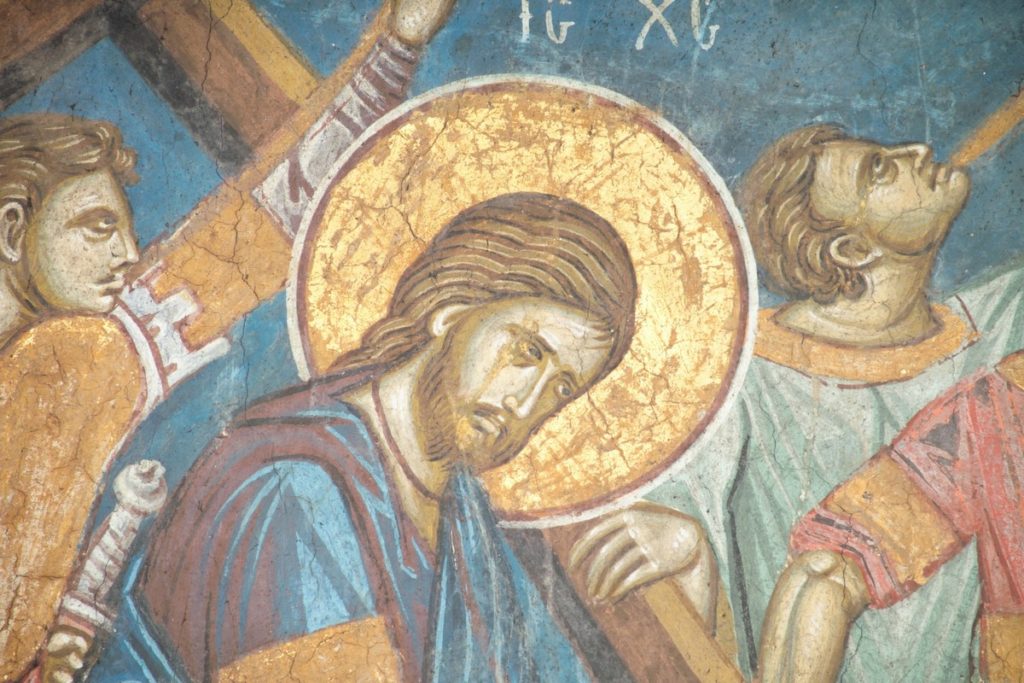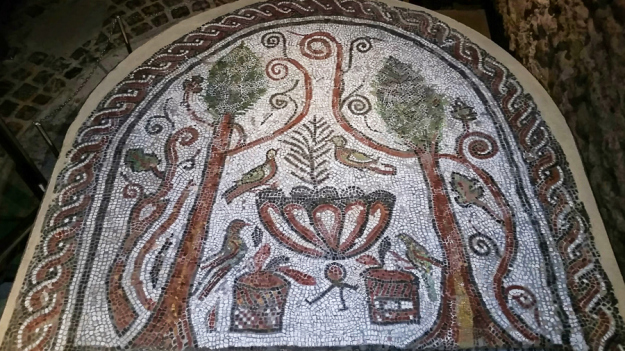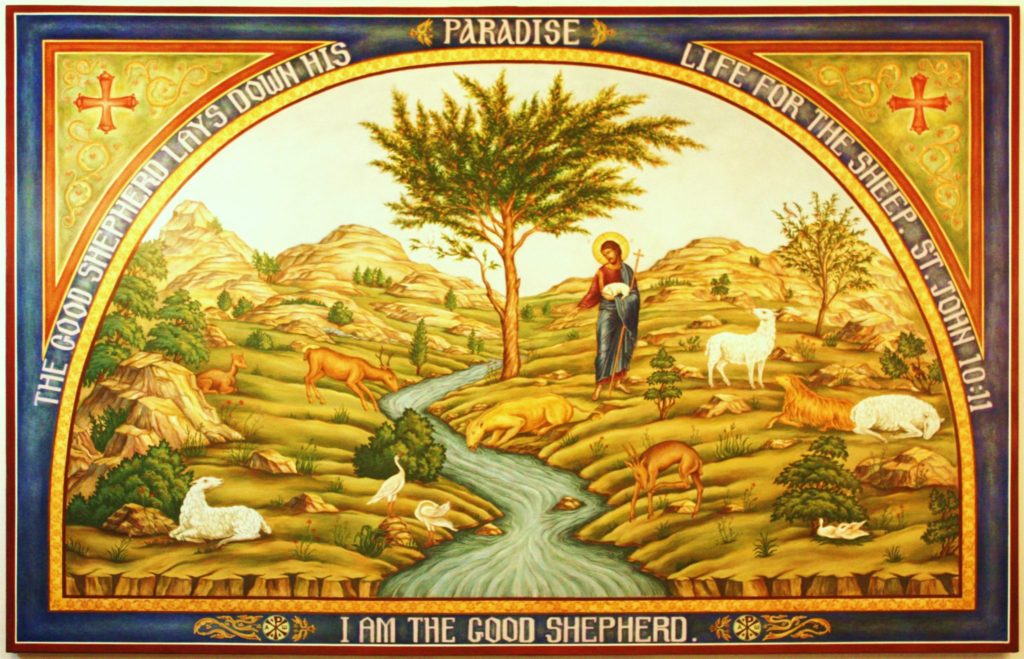Saturday of the Twelfth Week of St. Luke
You can listen to a podcast of this blog post at https://www.spreaker.com/episode/enter-in-by-the-narrow-gate-saturday-of-the-12th-week-of-luke–63427903
Today’s Gospel reading for the daily cycle is Luke 13: 18-29.
The Lord said this parable: Then said he, Unto what is the kingdom of God like? and whereunto shall I resemble it? It is like a grain of mustard seed, which a man took, and cast into his garden; and it grew, and waxed a great tree; and the fowls of the air lodged in the branches of it. And again he said, Whereunto shall I liken the kingdom of God? It is like leaven, which a woman took and hid in three measures of meal, till the whole was leavened. And he went through the cities and villages, teaching, and journeying toward Jerusalem. Then said one unto him, Lord, are there few that be saved? And he said unto them, Strive to enter in at the strait gate: for many, I say unto you, will seek to enter in, and shall not be able. When once the master of the house is risen up, and hath shut to the door, and ye begin to stand without, and to knock at the door, saying, Lord, Lord, open unto us; and he shall answer and say unto you, I know you not whence ye are: Then shall ye begin to say, We have eaten and drunk in thy presence, and thou hast taught in our streets. But he shall say, I tell you, I know you not whence ye are; depart from me, all ye workers of iniquity. There shall be weeping and gnashing of teeth, when ye shall see Abraham, and Isaac, and Jacob, and all the prophets, in the kingdom of God, and you yourselves thrust out. And they shall come from the east, and from the west, and from the north, and from the south, and shall sit down in the kingdom of God. And, behold, there are last which shall be first, and there are first which shall be last.
Our Lord’s hearers wanted to know, “…are there few that be saved?” He refused to answer Yes or No, as if to say, “Numbers and percentages of other people being saved are not the point.” Instead He told them to pay attention to their own salvation: “…Strive to enter in at the strait [=narrow] gate.” What is the narrow gate? Since we desire to be saved, obviously this is an all-important question.
We may think of the narrow gate in terms of our outer and inner life. In our outer life, the narrow gate is the way of life created by unwavering adherence to the True Faith and by unceasing attempts to live the Way demanded by the Truth, characterized by constant struggles that sometimes bring victories and sometimes bring defeats followed by repentance and renewed struggle. This unremitting warfare must last until death. By the grace of God and His mercy, if we remain on this path we will have a firm hope of our salvation.
Our present circumstances are actually quite favorable to this narrow gate approach to life, because, given what is going on around us, we will find that simply in virtue of not giving up our Faith and not giving up the struggle to live according to the Faith, we will be placed among “the few.” We have to remember that fewer and fewer people – both Orthodox and non-Orthodox – are likely to understand us, and that this does not tell us that we are doing anything wrong, but rather the opposite. They will go their way, and we must go ours. We must ask the Lord constantly for the humility to accept this and in simplicity of faith to persevere on the path laid out before us without condemning anyone else or being curious about their ultimate fate compared to ours. This quiet life of faithfulness in the midst of spiritual loneliness is our narrow gate.
This brings us to the subject of our inner life. St. Theophylact comments on the protest of the damned, “…and Thou hast taught in our streets,” as follows: “Observe that it is those whom the Lord taught in the streets, that is, who only received the Lord’s teaching in public, who are rejected. But if we receive His teaching, not just in public, but also within the closeness of our contrite and compunctionate heart, then we will not be rejected” (The Explanation of the Holy Gospel According to Luke, c. 13, vss. 23-30).” Here St. Theophylact is not addressing the subject of those who are formally outside the Church but rather of those who “officially” are inside, whether, as in Our Lord’s time, inside the Old Testament Church or, as in St. Theophylact’s (and our) time, inside the New Testament Church. In other words, being a nominal Christian, or even being a regular churchgoer who nevertheless does not have an inner life of prayer, does not save. We must cherish the Lord’s teaching “within the closeness of our contrite and compunctionate heart,” and if we do, then… rejoice! – “…we will not be rejected.”
These two aspects of the Life in Christ – the outer and inner – are intimately joined. By striving to remain outwardly faithful, we will invite rejection from the world. The ensuing loneliness will drive us either into giving up entirely or into a more intense inner life of prayer. Which way we go is up to us, but that we will go one way or the other is not in doubt.
One piece of good news is that there is more Orthodox literature about the inner life available to us than ever before. In the midst of the cataclysmic destruction of Christian civilization over the past 100 years, there has yet, by God’s loving Providence, been a rebirth of interest precisely in the spiritual life, manifested by an explosion of new editions and translations of the Church services and of spiritual books, as well as the movement to return to traditional iconography and chant. It is as if the Lord is saying, “I have given you a tough job, living in these times, but I am giving you some good tools to deal with it.” There are in fact so many of these tools that the difficulty lies in choosing which ones to use. I cannot recommend precisely or comprehensively which of these spiritual tools to choose for each of you reading this; you will have to work with your father confessor on that. There are basics, of course: the Scriptures and Lives of the Saints, the prayer book, the service books, the prayer rope, and articles and books about the spiritual life intended for beginners. Ask the Lord to show you the way. Prayer teaches itself.
Let us then take heart. The Lord desires our salvation, far more than we do ourselves. He does not require from us miracles but rather “…to receive His teaching, not just in public but also within the closeness of our contrite and compunctionate heart.” This each of us can do and by so doing acquire a firm hope of our salvation.
